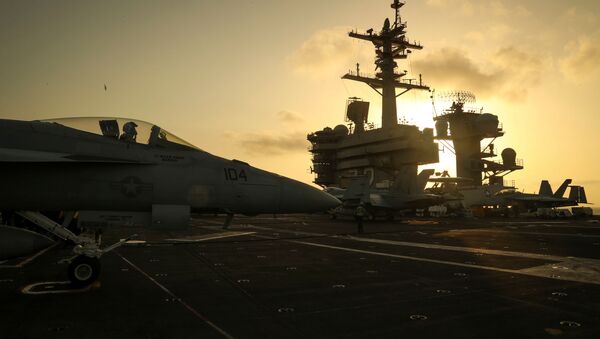According to Shanahan, "the recent Iranian attacks validate the reliable, credible intelligence we have received on hostile behavior by Iranian forces and their proxy groups that threaten United States personnel and interests across the region".
Shanahan also stressed in the statement that Washington "does not seek conflict with Iran", adding that the "action is being taken to ensure the safety and welfare of our military personnel working throughout the region and to protect our national interests".
BREAKING: @DeptofDefense @ActingSecDef Pat Shanahan authorizing addition of 1,000 US troops "for defensive purposes to address air, naval, and ground-based threats" in #MiddleEast pic.twitter.com/MOC2EGgotm
— Jeff Seldin (@jseldin) 17 June 2019
On Thursday, two oil tankers - the Kokuka Courageous and the Front Altair - were reportedly attacked in the Gulf of Oman near the Strait of Hormuz. While the causes of the incidents remain unknown, the United States has accused Iran of allegedly sabotaging the vessels.
In the wake of the attack, US President Donald Trump ordered the warship USS Mason to be dispatched to the area, adding to the United States' already significant military presence in the region.
The Pentagon has recently increased its forces in the Middle East. The US deployments in the region include an aircraft carrier strike group, Patriot missiles, B-52 bombers, and F-15 fighters, according to the US Defence Department.
Relations between Iran and the US deteriorated after Trump, an avid opponent of the Iranian nuclear deal, pulled out of the 2015 Joint Comprehensive Plan of Action in May 2018. The decision has been criticized by the other signatories of the nuclear deal: China, France, Germany, Iran, the European Union, Russia and the United Kingdom.
The US later unveiled new sanctions against Iran, targeting its economic, financial and transportation sectors, among others. The situation worsened when Iran announced on 8 May that it had partially discontinued its commitments under the agreement and had given Europe two months to ensure Iran's interests were protected under the deal.
Iranian Supreme Leader Ayatollah Ali Khamenei said that Tehran would not negotiate with the US. Iranian President Hassan Rouhani, however, has not ruled out the possibility of negotiations with Washington if sanctions against Tehran are lifted and the longstanding US policy of oppressing Iran is abandoned.


